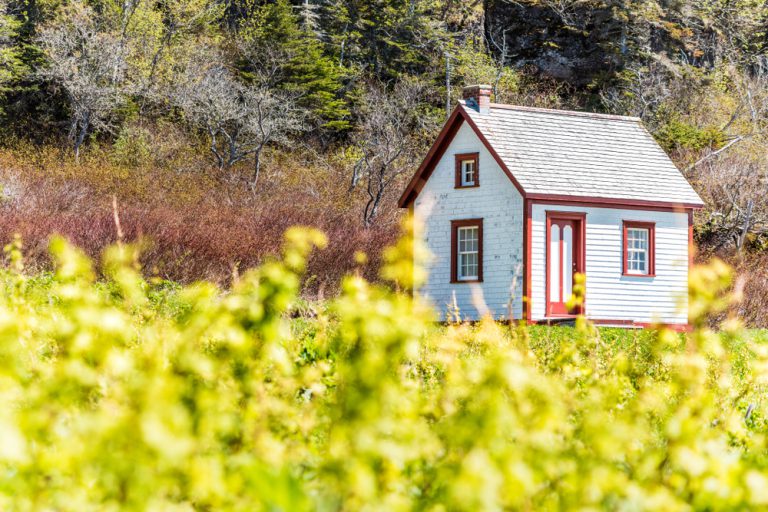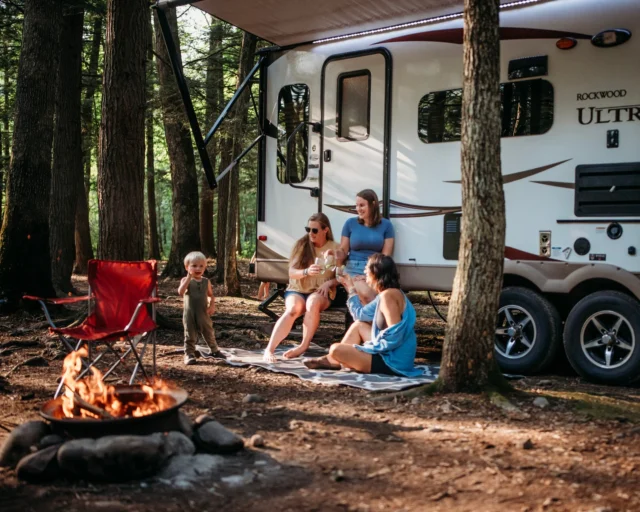
 Many RVers are also interested in tiny house living — and it makes sense. Both lifestyles are all about minimizing your worldly possessions and focusing on experiences rather than things, the idea being that it’s really our memories, in the long run, that bring us the most happiness.
Many RVers are also interested in tiny house living — and it makes sense. Both lifestyles are all about minimizing your worldly possessions and focusing on experiences rather than things, the idea being that it’s really our memories, in the long run, that bring us the most happiness.
But what is it really like, living in a tiny home? Even full-time RVers might be surprised at some of the significant differences between the two options.
Whether you’re considering trading in your rig for a tiny house or are just curious about what the lifestyle looks like, in this post, we’re going to dive into the nitty gritty of tiny house living, including both the benefits and drawbacks of this alternative lifestyle. We’ll also touch on how to tell whether you’d be better suited to a tiny home on wheels or an RV, be it a motorhome or travel trailer, in order to get where you’re going — no matter where that might be.
Small House Living
First things first: how did the tiny house movement start? Who are these people who want to live in little houses, and what’s their deal?
Well, in some ways, the movement itself has a very long history. After all, human beings were living in caves well before we ever learned to write, and most of us are familiar with the idea of a log cabin. Certain people have favored small living accommodations since as long as we’ve been, well, living.
But the intentional tiny house movement is generally believed to have begun around the 1980s, and continued to gain popularity through the 1990s and early aughts.
The tiny house movement is all about giving up the excess of physical space most of us have in our modern American homes in favor of living a more affordable, tractable life. In other words, it’s a fairly serious way to implement and live out the tenets of minimalism — when you only have 500 square feet or less to work with, every single object in your life has to hold some special value.
There are many informative tiny house books and memoirs that can help you get a better sense of the movement and the ideals that underlie it. They can also give you an insider’s look into what it’s actually like to live in a tiny house… which we’re also going to cover in more depth throughout the remainder of this blog post!
- The Big Tiny by Dee Williams
- The Not So Big House by Sarah Susanka
- Tiny House Basics: Living the Good Life in Small Spaces by Joshua and Shelley Engberg
Tiny Home RV

Along with living small, another thing many tiny house dwellers prioritize is travel — seeing new places and meeting new people, which can add to that store of memories and experiences we were talking about. That’s why many tiny houses are built onto trailer foundations, so that they have wheels under them, and can at least theoretically be towed wherever the owner desires.
However, it’s important to understand that many tiny houses, which are built with the same construction techniques and standards as foundation-built homes, are not exactly well-equipped for long-distance travel. Wood frames and interior fixtures meant for regular homes can’t always withstand the pressures of the road, and many tiny house owners find themselves needing to repair their homes after a long trip.
This is where the tiny house vs. RV argument starts to become relevant. After all, if you’re looking for a small dwelling that allows you to easily get from place to place… well, you’re pretty much describing a motorhome or travel trailer, right?
But still, some people decide a tiny house on wheels makes more sense for them — and others go the pre-built RV route. Read on to learn the reasons underlying those decisions.
Tiny House or Travel Trailer?

Here’s the thing. It’s pretty hard to argue with the fact that tiny houses are attractive. They’re usually built to look like something straight off HGTV, with beautiful, minimalistic lines in clean-looking, neutral colors — they’re incredibly inviting. (And what’s more, since they’re usually custom-built by their owners, you can really make your tiny house look like whatever you want it to be!)
RVs, on the other hand… I mean, there are definitely lots of very pretty ones, especially if you look at the clever renovations and DIY jobs many RV owners do. We’ve seen some remodeled rigs that really knock our socks off, and are totally, unequivocally Instagrammable. (In fact, browsing through some of these renovations is one of our favorite ways to spend time on Instagram, if we’re being honest.)
But an RV will almost never have the form factor or infinite customizability that a tiny house will have. And if having a say in every last detail of your home is important to you, that could make a tiny house win out over an RV in your “where should I live?” calculation.
On the other hand, if you’re looking to hit the road in earnest and you want to do it as quickly as possible, a motorhome or travel trailer will probably serve you better. Yes, they’re pre-built, but they’re also built to withstand actual travel — and although you’ll always have to factor in time and budget for repairs, your home will be set up with the systems it needs to make road travel a whole lot easier.
What’s more, tiny homes exist in a kind of legal gray area in many cities, where codes and ordinances make it technically illegal to use a non-foundation-built structure as a dwelling. Or you might run into specific technicalities about how many square feet a building has to have in order to meet standards, all of which can be hard to pull off in a tiny home design. With RVs, on the other hand, a long-standing precedent makes them a lot less hairy from a legality standpoint. You always know you’ll have somewhere legal to park, just so long as you can find space at a campground.
At the end of the day, here’s the most major difference between tiny homes and RVs, and which leads some people to lean towards one or the other: tiny homes are a great option for those looking to live a minimalistic lifestyle mostly in one space, perhaps with an occasional migration to skip winter. You get all the comfort and style of a “regular” home at a much smaller footprint (and usually a much smaller price tag), and you can still pick up and move if you absolutely want to. On the other hand, if you’re looking to transition into a nomadic way of life, a motorhome or travel trailer could make more sense. They’re pre-built and thus easy to go out and just buy off the lot, getting you on your way sooner than later, and they’re designed with real mobility in mind. We’re not saying you’re never going to suffer a breakdown, but you also won’t have to hold your breath every time you decide it’s time to pick up and go see something new.
How to Tell if a Tiny House or RV is Right for You

At the end of the day, only you can decide which of these two alternative lifestyle choices works best for your needs and desires. But we will say this: it’s a whole lot easier to figure it out if you have real-world experience of both options!
As far as tiny house living goes, you can look into specialty hotels that offer tiny house accommodations, like this tiny house hotel in Portland or the Tiny House Village at Tuxbury Pond RV Resort in New Hampshire.
As far as experiencing an RV, well… chances are you know what we’re going to say. But renting on the peer-to-peer market really is ideal for those thinking seriously about taking on the full-time lifestyle. Our trusted local owners offer RVs of every shape, size, and footprint, and since rental prices are so much lower than what you find at the commercial dealerships, it’s no big deal to experience several different kinds. Our rigs are also backed by A-rated insurance coverage, so you won’t have to sweat the small stuff. (Well, not that small stuff. You know what we mean.)
The best way to understand exactly what it’s like to live in any kind of dwelling is to actually live in it… so check out the RVshare rental listings available in your area today.
Happy living — even if it’s small living!
This post may contain affiliate links.






